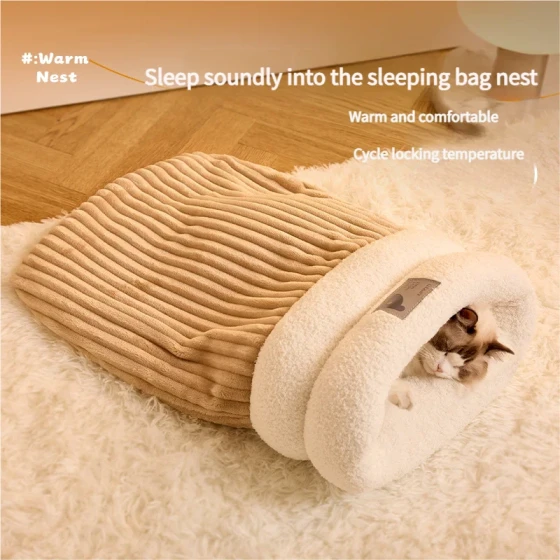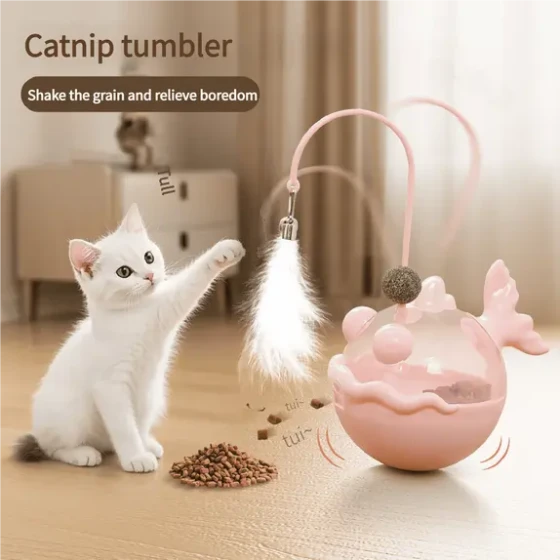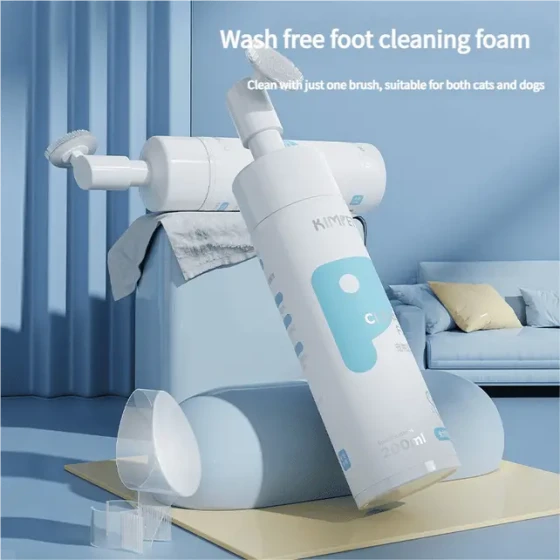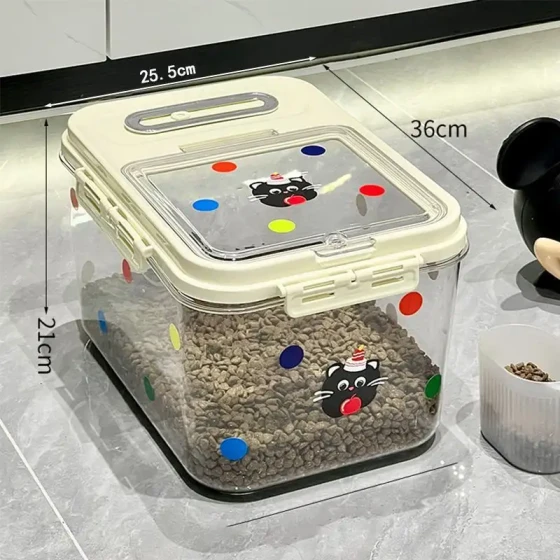Cats Frequently Licking Mouth and Smacking Sound_Warning Signs of Abnormal Behavior in Cats' Health
Cats frequently licking their mouths and making a "smacking" sound is sometimes a normal physiological behavior, such as cleaning after eating, grooming fur, or simply reacting to the surrounding environment. However, if this behavior suddenly becomes frequent, persistent, or is accompanied by other abnormal symptoms, it may not just be a "kitty's" little habit but a health alert signal from the body that requires the owner's attention.

Understanding the possible reasons behind cats licking their mouths helps us better judge their health conditions and take timely appropriate measures.
Common reasons for cats licking their mouths and making smacking sounds
The reasons cats lick their mouths with a smacking sound are varied and can generally be divided into normal physiological behaviors and health problems that require attention.
-
Normal physiological behavior
- Cleaning after eating: Just like we wipe our mouths after meals, cats lick their mouths after eating to remove food residue and maintain oral hygiene. This is a very normal behavior.
- Grooming fur or cleaning the body: Cats are famously "clean freaks"; they spend a lot of time grooming their fur. Licking the mouth is also part of cleaning their face and mouth during this process.
- Sensory exploration: Cats use their tongue and mouth to perceive the surrounding world, and sometimes licking their mouth is a way to explore the environment and gather information.
- Relaxation and comfort: Some cats slightly lick their mouths when feeling relaxed or comfortable, often accompanied by contented purring.
- Mild thirst or dryness: When the mouth feels slightly dry, cats may lick their mouths to moisten them.
-
Potential health problems
- Oral diseases: This is one of the common causes of cats frequently licking their mouths and making smacking sounds. Dental issues (such as tartar, gingivitis, periodontal disease, broken teeth), oral ulcers, stomatitis (inflammation of the oral mucosa), etc., all cause discomfort or pain in the cat's mouth, prompting them to lick their mouth to try to relieve the discomfort. For example, gingivitis causes swollen, painful gums, and cats may lick their mouths to stimulate saliva or try to clean the affected area.
- Nausea or queasiness: If a cat feels nauseous or is about to vomit, it may show symptoms like frequent mouth licking and drooling. This can be caused by many reasons, such as eating something unclean, gastrointestinal discomfort, motion sickness, or even early signs of certain diseases.
- Digestive system problems: Besides nausea, issues like acid reflux, gastritis, intestinal inflammation, and other digestive tract problems may also cause oral discomfort, triggering mouth-licking behavior.
- Foreign objects in the mouth: Accidentally ingesting threads, small bones, plant debris, or other foreign bodies stuck between teeth or oral mucosa can cause significant discomfort. Cats will frequently lick their mouths or even use their paws to scratch their mouths, trying to remove the foreign object.
- Pain: Pain in the mouth or other parts of the body can indirectly cause cats to lick their mouths. For example, cats suffering from pancreatitis may lick their mouths due to pain.
- Nervous system problems: In very rare cases, frequent mouth licking may be a sign of certain nervous system issues, such as localized epileptic seizures.
- Stress or anxiety: Like humans, cats may exhibit some compulsive or substitute behaviors when stressed, anxious, or nervous, and frequent mouth licking can be one way to relieve emotions. Environmental changes, new family members, loud noises, and other factors can become stress triggers for cats.
- Certain systemic diseases: Some systemic diseases such as diabetes and kidney disease may also be accompanied by oral symptoms or cause discomfort, leading cats to lick their mouths.
When should you take your cat to the vet?
Distinguishing between normal mouth licking and health signals that require attention is crucial. If your cat shows any of the following conditions, it is recommended to take it to the vet as soon as possible:
- The licking behavior suddenly occurs and persists without relief.
- The frequency of licking is abnormally high, significantly more than usual.
- Accompanied by other abnormal symptoms: such as decreased or lost appetite, depression, drooling (thick or bloody saliva), difficulty swallowing, pawing at the mouth, bad breath, swollen or bleeding gums, weight loss, vomiting or retching, behavioral changes (like hiding or irritability), etc.
- You are unsure of the cause or worry that your cat may have accidentally ingested something harmful.
What can cat owners do?
Before taking your cat to the vet, you can first observe and record the following:
- Observe the frequency, duration, and circumstances under which the licking occurs.
- Check if the cat has any other abnormal symptoms.
- If the cat allows, try carefully inspecting its mouth to see if there are obvious foreign objects, swelling, ulcers, or dental problems. But please be cautious and do not force an inspection if the cat shows aggression or pain to avoid injury.
- Record all abnormal observations to inform the veterinarian.
Frequently Asked Questions
- Does a cat licking its mouth mean it is sick?
Not necessarily. As mentioned earlier, cats licking their mouths is often normal physiological behavior, such as after eating, grooming, or feeling relaxed. Only when the licking is abnormally frequent, persistent, or accompanied by other discomfort symptoms should one be concerned about health problems. - How to tell if a cat's licking is due to nausea?
If mouth licking is accompanied by drooling, retching, lethargy, poor appetite, and other symptoms, it is very likely the cat feels nauseous or queasy. - Can I check my cat's mouth at home by myself?
If you have a close relationship with your cat and it has a gentle temperament, you can try a careful and quick inspection. But be gentle and ensure safety. If the cat resists or shows pain, do not force the check. Professional oral examinations should be done by a veterinarian. - How much does it cost to have a cat’s mouth checked at the vet?
Veterinary fees vary by region, clinic level, and required tests (such as basic examination, X-rays, blood tests). Basic exams usually range from several dozen to a hundred or two yuan RMB. If further tests or treatments are needed, costs will be higher. It’s recommended to consult your local pet hospital in advance.
Summary
Frequent mouth licking and smacking sounds in cats is a behavior signal that requires careful observation by owners. While often a normal physiological expression, abnormal behavior or accompanying symptoms may be health warning signs from the body. As responsible pet owners, we should learn to distinguish these and seek professional veterinary help when necessary to ensure our "masters" live healthy and happy lives. Don’t ignore this small licking action—it’s their only way to tell us "they are not feeling well."
References
- Article on cats licking lips from PetMD website.
- Article on feline stomatitis from VCA Animal Hospitals website.



